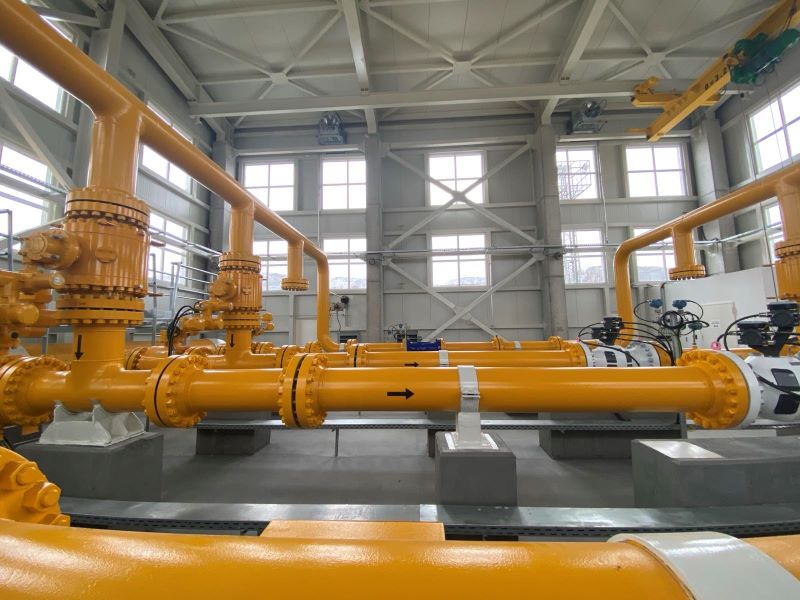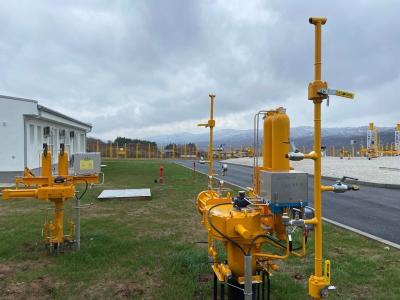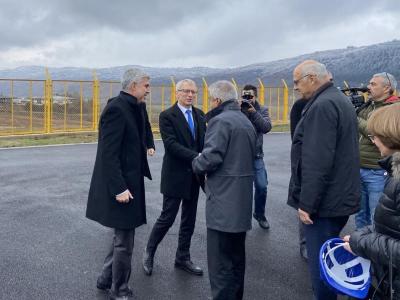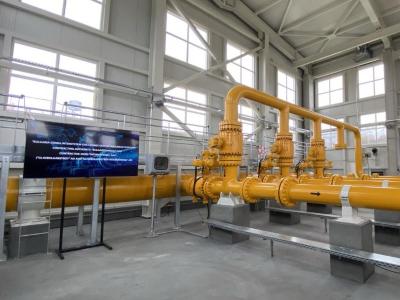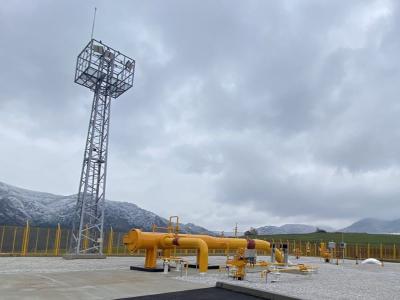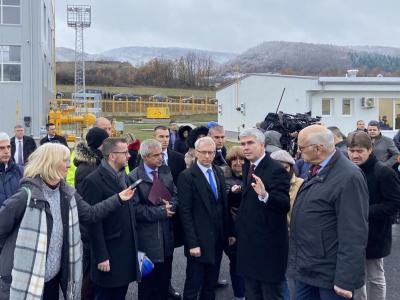Interconnector Bulgaria – Serbia is ready for Bulgarian entry into operation
Prime Minister Nikolay Denkov, Energy Minister Rumen Radev and Bulgartransgaz Executive Director Vladimir Malinov visited on site the newly built facilities
Interconnector Bulgaria – Serbia is ready for Bulgarian entry into operation. This was affirmed following the inspection of the facilities of the Kalotina gas measuring station by Prime Minister Nikolay Denkov, Energy Minister Rumen Radev and Bulgartransgaz Executive Director Vladimir Malinov.
Prime Minister Nikolay Denkov commented that the gas interconnection would enable our country to receive natural gas from Western Europe as well, to further diversify its sources and to obtain strong negotiating positions. He added that owing to the new facility, Bulgarian towns of Slivnitsa and Dragoman could now be gasified.
The Prime Minister underlined that due to the projects supported by the European Commission Bulgaria enjoys greater interconnectivity compared to previous years and that with the interconnector with Greece and the gas interconnection with Serbia in operation, our country is now able to receive gas from several directions.
Vladimir Malinov, Executive Director of Bulgartransgaz EAD, noted the importance of the project in the context of diversification of supplies. Last but not least, in his words, this gas interconnector gives Bulgaria access to the LNG terminals in Croatia and to the largest liquid gas market in our region, namely Austria.
The executive director of the state-run company said, in response to a journalistic question, that any booking of capacity accumulates revenue to Bulgartransgaz, the project is cost-effective and will bring the necessary benefits to the company. Over 40 per cent of January's capacity had already been booked, he added.
Before the media, Energy Minister Rumen Radev highlighted that when we talk about diversification, this is what it looks like in a real context, namely these facilities, already built and functioning, and for which credit should also be given to the constructors who carried out the project.
Minister Radev stressed that the built gas interconnector contributes to a number of benefits and should be seen within the whole infrastructure integrity. The Energy Minister focused we are doubling the capacity of the Chiren gas storage facility and that the users of the gas interconnector will have the possibility to reserve storage capacity in our country. Minister Radev reminded of Bulgaria's participation in the liquefied natural gas terminal in Alexandroupolis, where the Serbian side can purchase liquefied natural gas. This gas can be transported through the newly constructed gas pipeline, which will result in accumulating additional revenues for Bulgaria. In broader perspective, we should bear in mind that the region of the Balkans is yet to evolve: “Kosovo, Montenegro, and Albania - these are countries without gas supply because they do not have access to natural gas. This is where IBS will develop at regional level.”
In response to journalistic questions, Minister Radev said that the state-owned company Bulgargaz would most likely have an interest in buying gas through IBS. He recalled that Bulgargaz has recently signed an agreement on potential joint purchases of non-Russian liquefied natural gas with the Hungarian gas company, adding that such an agreement could be signed between the gas companies of Bulgaria and Serbia as well.
Concerning the commissioning of the liquefied natural gas terminal in Alexandroupolis, Minister Radev explained that certain activities should be completed to connect the terminal to the adjacent gas infrastructure and he had not assumed that the terminal could be used in the most crucial winter months for deliveries.
Vladimir Malinov added that the ship itself, which would serve as a terminal, would arrive in Alexandroupolis on 17 December and that in January the real process of commissioning would begin with a test of the whole system. He pointed out that 1st March is a feasible date for commissioning.

